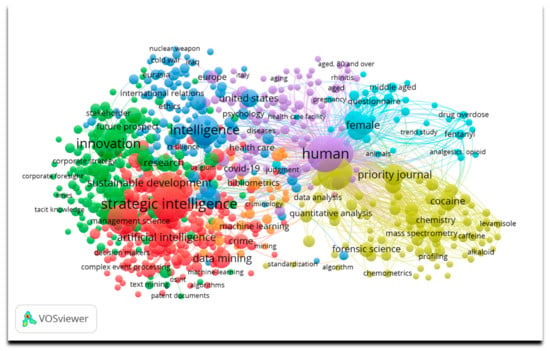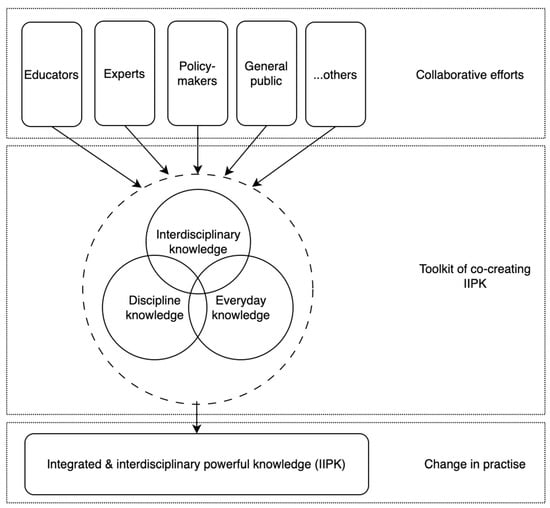Knowledge Management in Encyclopedia
Share This Topical Collection
Editors
 Prof. Dr. Constantin Bratianu
Prof. Dr. Constantin Bratianu
 Prof. Dr. Constantin Bratianu
Prof. Dr. Constantin Bratianu
E-Mail
Website
Collection Editor
Faculty of Management, National University of Political Studies and Public Administration, 012244 București, Romania
Interests: knowledge management; knowledge dynamics; knowledge strategies; strategic management
Special Issues, Collections and Topics in MDPI journals
 Prof. Dr. Elena-Mădălina Vătămănescu
Prof. Dr. Elena-Mădălina Vătămănescu
 Prof. Dr. Elena-Mădălina Vătămănescu
Prof. Dr. Elena-Mădălina Vătămănescu
E-Mail
Website
Collection Editor
Faculty of Management, National University of Political Studies and Public Administration, 012244 București, Romania
Interests: business internationalization; knowledge management; intellectual capital; business networks; information systems; sustainability
Topical Collection Information
Dear Colleagues,
Knowledge management has evolved almost exponentially in the last decade, with new challenges for thinking of new paradigms with which to manage intangibles and create knowledge strategies for a desirable future. The complexity of knowledge management asks for new approaches in research and new interpretations based on neuroscience and knowledge dynamics. Knowledge management is not replacing classical management but enriching it with new theories and business models. Knowledge strategies are at the core of business strategies. Knowledge management is closely related to intellectual capital and makes possible its transformation from organizational potential to production force through specific thinking.
This new Topic Collection constitutes an opportunity for researchers interested in knowledge management and intellectual capital to share their ideas and findings. Studies related to knowledge management in Encyclopedia are especially welcomed.
Prof. Dr. Elena-Mădălina Vătămănescu
Prof. Dr. Constantin Bratianu
Collection Editors
Manuscript Submission Information
Manuscripts should be submitted online at www.mdpi.com by registering and logging in to this website. Once you are registered, click here to go to the submission form. Manuscripts can be submitted until the deadline. All submissions that pass pre-check are peer-reviewed. Accepted papers will be published continuously in the journal (as soon as accepted) and will be listed together on the collection website. Research articles, review articles as well as short communications are invited. For planned papers, a title and short abstract (about 100 words) can be sent to the Editorial Office for announcement on this website.
Submitted manuscripts should not have been published previously, nor be under consideration for publication elsewhere (except conference proceedings papers). All manuscripts are thoroughly refereed through a single-blind peer-review process. A guide for authors and other relevant information for submission of manuscripts is available on the Instructions for Authors page. Encyclopedia is an international peer-reviewed open access quarterly journal published by MDPI.
Please visit the Instructions for Authors page before submitting a manuscript.
The Article Processing Charge (APC) for publication in this open access journal is 1000 CHF (Swiss Francs).
Submitted papers should be well formatted and use good English. Authors may use MDPI's
English editing service prior to publication or during author revisions.
Keywords
- knowledge management
- knowledge dynamics
- knowledge strategies
- intellectual capital
- knowledge creation
- knowledge sharing
- knowledge use
Published Papers (2 papers)
Open AccessArticle
Strategic Intelligence: A Semantic Leadership Perspective
by
Dan Paiuc, Adina Săniuță and Alina Mirela Teacu Parincu
Viewed by 361
Abstract
This paper explores the notion of strategic intelligence, namely with respect to leadership and business-oriented areas. Strategic intelligence is a researched concept that primarily concerns the collection and analysis of intelligence for policy and military planning, mainly at national and international levels, whereas
[...] Read more.
This paper explores the notion of strategic intelligence, namely with respect to leadership and business-oriented areas. Strategic intelligence is a researched concept that primarily concerns the collection and analysis of intelligence for policy and military planning, mainly at national and international levels, whereas this study of management and organizational decision-making application is an extension of that. This article’s subject is the necessity for strategic intelligence, a crucial competence for leaders, managers, and companies striving to remain competitive, to be utilized and best leveraged in today’s volatile and dynamic business contexts. This study follows a research design that includes a thorough literature review and bibliometric research, executed via VoSViewer, illustrating the concept of strategic intelligence from a leadership point of view as a driver of competitive advantage, enhanced by knowledge dynamics. Furthermore, this article points out that the limitations are acknowledged because the literature on the matter is limited, as strategic intelligence is relatively new to the business sector; moreover, more research is required to fully understand and use the potential of strategic intelligence in business growth. Overcoming these limitations and continuing to study the strategic intelligence concept could, on the one hand, use multiple platforms, such as scholarly articles or encyclopedias, and, on the other hand, support businesses in gaining a competitive edge and making informed decisions that can fuel their success in an ever-evolving market.
Full article
►▼
Show Figures
Open AccessEntry
Co-Creating Interdisciplinary Integrated Powerful Knowledge
by
Premnadh M. Kurup, Xia Li, Yan Dong, Meenu Bhardwaj and Yunying Yang
Viewed by 1317
Definition
Interdisciplinary and integrated powerful knowledge (IIPK) is the outcome of integrating multiple disciplinary perspectives and approaches to tackle challenging real-world issues. Using many disciplinary fields, IIPK is essential for problem solving, innovation, and technical breakthroughs that require careful, imaginative, and innovative application of
[...] Read more.
Interdisciplinary and integrated powerful knowledge (IIPK) is the outcome of integrating multiple disciplinary perspectives and approaches to tackle challenging real-world issues. Using many disciplinary fields, IIPK is essential for problem solving, innovation, and technical breakthroughs that require careful, imaginative, and innovative application of a wide range of disciplinary knowledge. It is especially relevant when addressing socio-scientific issues, which require a comprehensive understanding of scientific, social, and ethical dimensions. Collaborative and interdisciplinary work among people with diverse backgrounds and expertise is necessary to advance IIPK, including professionals from different academic fields, policymakers, stakeholders, and community members who bring various perspectives and values to the table. The co-creation of IIPK could inform policy making, support informed decision making, and lead to more comprehensive, effective, and sustainable solutions. Theoretical underpinnings and practical applications of co-creating IIPK are discussed here based on several principles with the potential to impact current practices. The co-creation and dissemination of IIPK could use multiple platforms, such as scholarly articles, encyclopedias, and media, including social media. These platforms provide scope for co-creating powerful knowledge through a people participatory approach, which would lead to changes in practices.
Full article
►▼
Show Figures






